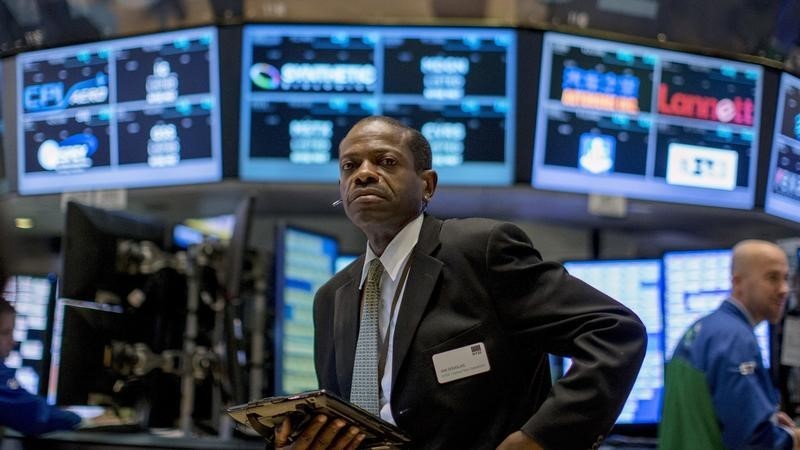By Herbert Lash
NEW YORK (Reuters) - Crude oil surged 5 percent on Tuesday after the United States cut output forecasts, while global equity markets mostly rose on expectations the Fed will not raise interest rates this year, though Wall Street fell on slumping biotech stocks.
News that non-OPEC producer Russia and key OPEC member Saudi Arabia discussed the oil market last week helped boost oil prices. The countries plan to continue exchanging views on demand, production and shale oil, Russian Energy Minister Alexander Novak told reporters.
A weakening dollar also added support for oil, while the U.S. Energy Information Administration projected in a monthly forecast that the country's crude output will fall through mid-2016.
"Steeper U.S. production declines over the near term have created a bid for oil prices," said Chris Jarvis, analyst at Caprock Risk Management in Frederick, Maryland.
Brent, the global benchmark for crude, rose $2.67 to settle at $51.92 a barrel. West Texas Intermediate, the U.S. crude benchmark, settled $2.27 higher at $48.53.
European shares rallied, extending strong gains from the previous session on expectations the U.S. and European central banks will maintain equity-friendly monetary policy in the coming months.
Large volume in the U.S. stock market's rally on Monday suggests that at least the downside momentum is now broken, said Bruce Bittles, chief investment strategist at Robert W. Baird & Co in Sarasota, Florida.
"The markets are playing off the fact that there's a strong likelihood the market has now made a bottom, and we at some point will begin a year-end rally," Bittles said.
The pan-European FTSEurofirst 300 closed up 0.65 percent, while MSCI's all-country world stock index rose 0.28 percent, aided by a 1 percent gain earlier in Tokyo.
A 7.7 percent gain in shares of DuPont (NYSE:DD) after CEO Ellen Kullman said she would step down helped the Dow advance. But continued deterioration in biotechs kept a damper on U.S. stocks, said Ryan Larson, head of U.S. equity trading at RBC Global Asset Management in Chicago.
The Nasdaq Biotech index fell 3.8 percent, with 126 of its 142 constituents trading lower. "It's really hurting the growth trade, the momentum trade today, and that's apparent in the smaller Russell indices," Larson said.
The Russell 2000 index was off 0.70 percent, while the Dow Jones industrial average closed up 13.76 points, or 0.08 percent, to 16,790.19. The S&P 500 fell 7.13 points, or 0.36 percent, to 1,979.92 and the Nasdaq Composite lost 32.90 points, or 0.69 percent, to 4,748.36.
The U.S. dollar slipped 0.69 percent against major currencies on continued expectations the Fed will not this year hike rates for the first time in almost a decade.
Commerce Department data showing the largest expansion in the U.S. trade deficit in five months in August reinforced expectations the Fed would delay hiking rates until next year. A weak U.S. jobs report on Friday has also driven such expectations.
"People are still very sceptical about the Fed raising rates this year," said Thierry Albert Wizman, interest rates and currency strategist at Macquarie Ltd in New York.
The dollar was last down 0.2 percent against the yen at 120.21 yen. The euro was last up 0.8 percent against the dollar at $1.1274.
U.S. Treasuries prices also gained on the increase in the U.S. trade deficit, which reinforced the view of slowing global demand.
Benchmark 10-year Treasuries notes were up 6/32 in price to yield 2.0350 percent.

Yields on 10-year German Bunds, the benchmark for euro zone borrowing costs, rose 2 basis points to 0.59 percent.